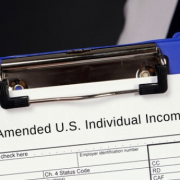One Big Beautiful Bill Extends Many Business-Friendly Tax Provisions
The One Big Beautiful Bill Act (OBBBA) delivers a wide range of tax updates for U.S. businesses—most of them favorable.
While a few changes may increase tax liability for some, the overall impact is likely positive for many businesses.
Below are the key provisions of the OBBBA that could affect your tax planning strategy.
Qualified Business Income (QBI) Deduction
Originally enacted under the Tax Cuts and Jobs Act (TCJA), the Section 199A deduction for QBI was set to expire after 2025. The OBBBA makes this deduction permanent, offering long-term relief for owners of pass-through entities (such as partnerships, LLCs, S corporations) and sole proprietors.
Key changes include:
- Expanded income phase-in thresholds: For specified service businesses and those subject to wage/investment limitations, phase-out ranges now extend to $75,000 (individual filers) and $150,000 (joint filers), up from $50,000 and $100,000, respectively.
- New minimum deduction: Starting in 2025, a minimum inflation-adjusted QBI deduction of $400 is available for taxpayers with at least $1,000 in QBI from one or more materially participated businesses.
Accelerated Bonus Depreciation
The OBBBA makes permanent the 100% bonus depreciation for qualified new and used property placed in service after January 19, 2025, replacing the phasedown schedule under the TCJA.
Additional updates:
- New 100% deduction for “qualified production property” (certain nonresidential real estate used in manufacturing) placed in service between July 4, 2025, and 2031.
- Increased Section 179 limits: Deduction limit raised to $2.5 million, with a phaseout threshold of $4 million for 2025, both indexed for inflation.
These changes are designed to spur investment, particularly in sectors like manufacturing, agriculture, construction, and real estate.
Research & Experimentation (R&E) Expense Deduction
Previously, the TCJA required domestic R&E expenses to be amortized over five years. The OBBBA reinstates immediate deductibility of domestic R&E expenses starting in 2025.
For small businesses (those with less than $31 million in average annual gross receipts), the law allows retroactive deductions for 2022–2024, with an option to accelerate remaining amortized amounts over one or two years.
Clean Energy Tax Incentives
The OBBBA rolls back several clean energy incentives introduced under the Inflation Reduction Act. Eliminated or phased-out credits include:
- Qualified commercial clean vehicle credit
- Alternative fuel vehicle refueling property credit
- Section 179D deduction for energy-efficient commercial buildings
Example deadlines:
- The commercial vehicle credit now expires for vehicles acquired after September 30, 2025.
- The refueling property credit is available through June 30, 2026.
Qualified Opportunity Zones (QOZ)
Building on the TCJA’s initiative, the OBBBA makes the QOZ program permanent and enhances its benefits.
Notable updates:
- Incremental gain reductions begin after the first year of investment.
- In year seven, investors must recognize their initial gains, adjusted for any basis step-ups.
- A new class of QOZs is introduced for rural areas, with triple the basis step-up for qualifying investments.
- The first round of new QOFs launches January 1, 2027.
International Tax Provisions
The OBBBA locks in and modifies several international tax rules from the TCJA:
- Makes FDII and GILTI deductions permanent, with both set at a 14% effective rate starting in 2026.
- Makes the BEAT (Base Erosion and Anti-Abuse Tax) permanent and raises its rate to 10.5%.
These changes offer more certainty for multinational businesses.
Employer Tax Incentives
The law enacts several permanent employer-related tax benefits:
- Student loan repayment exclusion (from employee income and employer wages) is made permanent. The $5,250 annual cap will be adjusted for inflation starting in 2027.
- Childcare credit increased from 25% to 40%, up to $500,000/year (or 50% and $600,000 for small businesses), with future inflation adjustments.
- Paid family and medical leave credit becomes permanent, with employers now able to claim the credit for part of insurance premiums paid.
Employee Retention Tax Credit (ERTC)
If you filed an ERTC claim after January 31, 2024, be aware that the OBBBA prohibits the IRS from issuing refunds for certain claims filed after that date. It also extends the IRS’s review window to six years from the date of filing.
Other Business Tax Changes
- Business interest deduction: Starting in 2025, depreciation, amortization, and depletion are excluded from the adjusted taxable income (ATI) calculation, increasing the allowable deduction.
- Excess business loss limitation: Permanently extended (previously set to expire in 2029).
- New Markets Tax Credit: Also permanently extended.
What to Expect Next
Unlike the TCJA, the OBBBA focuses on extensions and targeted updates, so it’s unlikely to prompt a major wave of IRS regulations. However, technical guidance and clarifications will still follow. Stay tuned for IRS updates.







